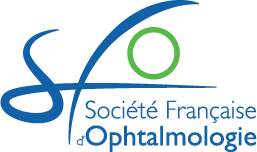Although anti-vascular endothelial growth factor (anti-VEGF) treatment is a cornerstone in neovascular age-related macular degeneration (nAMD), the management of patients with nAMD in real-world settings is also crucial. To capture and better understand medical practices in France, ophthalmologists were surveyed regarding their treatment strategies in 2013, 2015, 2016 and 2017. This present survey in 2018 will evaluate medical approaches in nAMD and identify the changes that have occurred since 2013.
Name
199 - Enquête des pratiques de la DMLA : évaluation des changements entre 2013 et 2018
Introduction
Patients et Methodes
Kantar Health Institute will conduct a quantitative survey among 200 ophthalmologists (120 general ophthalmologists; 80 retinal specialists) in February and March 2018. Most of the survey questions are similar to those addressed previously and some have been added to capture new insights in medical practices. In particular, the survey will evaluate i) diagnosis and treatment trends and ii) logistical organization and access to care for nAMD patients.
Résultats
When available, the results of the 2018 survey will highlight the changes in the management of nAMD from 2013 through 2018 and, if statistically relevant, these results will be stratified according to the number or injections administered by visit. The 2013, 2015, 2016 and 2017 surveys underscored an improvement in the management of patients with nAMD in real-world settings although treatment regimens used by retinal specialists were shown to be highly variable. In 2017, the delay between diagnosis and first intravitreal injection was shortened compared with previous years but patient-related problems increased. A number of solutions to enhance organization and the patient pathway have been implemented. For example in 2017, the proportion of retina specialists performing bilateral injections on the same day increased considerably compared with 2016 (75% vs 58% respectively). The 2018 survey results are expected in March 2018.
Discussion
A comparison of this survey with those from 2013, 2015, 2016 and 2017 will provide new insights into nAMD patient management in France.
Conclusion
The results from this 2018 survey will be valuable to understand changes in medical practice over 5 years, and highlight areas for improvement.
